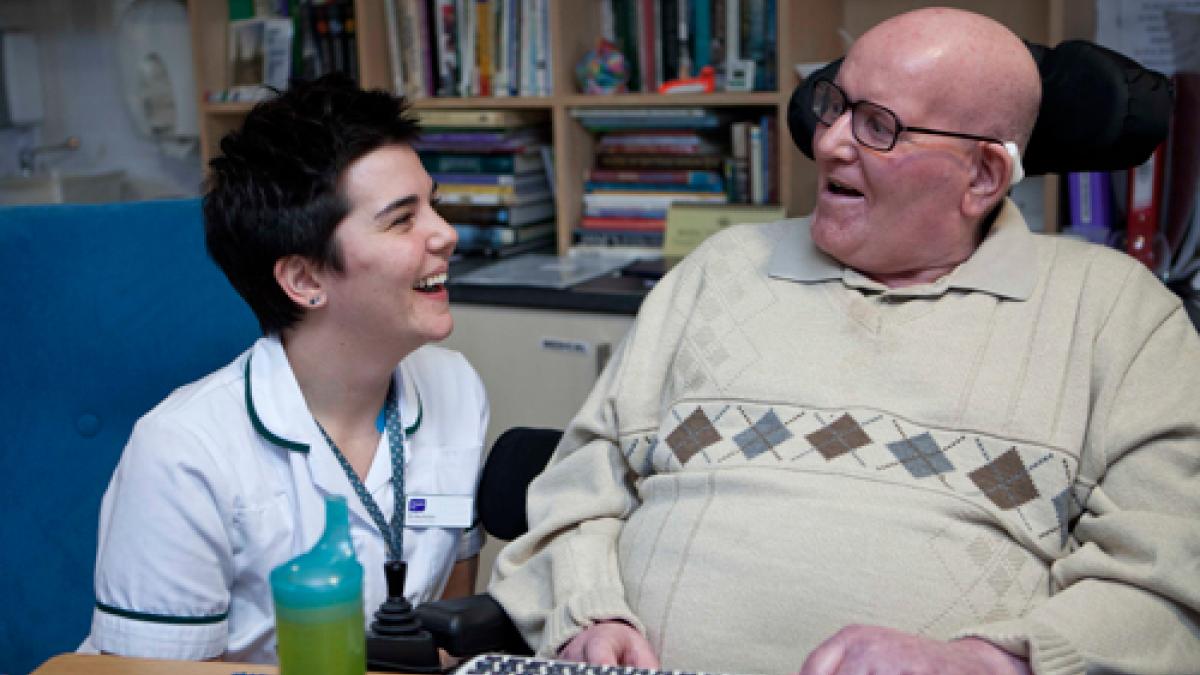New quality standards for the treatment of motor neurone disease could give physios evidence to support service development, according to respiratory physio Ema Swingwood.

Motor neurone disease affects about 4,000 people in England and Wales - photo: Motor Neurone Disease Association
The education champion for the Association of Chartered Physiotherapists in Respiratory Care made her comments following the publication of updated quality standards for motor neurone disease in July.
The document, from the National Institute for Health and Care Excellence, includes standards for respiratory assessment and non‑invasive ventilation.
Healthcare professionals who can assess respiratory function should do so as part of an initial assessment to diagnose motor neurone disease, or soon after diagnosis, and then every two to three months, it says.
It sets the same time frame for health professionals to ensure they assess and anticipate changes in the person's needs, including mobility and daily living needs and abilities.
The quality standard for end of life care says health professionals should make sure they give people with motor neurone disease the opportunity to discuss their preferences and concerns about end of life care. This should take place at diagnosis and key stages of the disease progression.
It recommends that physios and other professionals should ensure they are sensitive about the timing of discussions and take into account the person's current communication ability, cognitive status and mental capacity.
Ms Swingwood said: ‘The quality standards provide clinicians with a benchmark, or optimal standard, for service models and delivery for this patient group.
‘Where there’s a gap in current treatment for people with motor neurone disease, then the standard provides clinicians with reference and evidence to support plans for service development – which can be taken to managers and commissioners alike.’
There are about 4,000 people with motor neurone disease in England and Wales, according to NICE. While the cause is unknown, between five and 10 per cent of those affected have a family history of the disease, and several abnormal genes have been identified.
Find Out More
Number of subscribers: 0